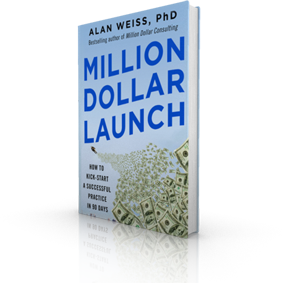 |
|
Volume 6 Number 12 | December 2016Staying "Up"Many people tell me they hit slumps and troughs, sometimes a couple of times a year, sometimes every month, and sometimes at some point every day. The are periods marked by low energy, low motivation, lack of creativity, and generally a non-clinical depression. Their work suffers, and they struggle to resume a more normal and productive work load. Ironically, that probably exacerbates the problem. We’re usually “down” because we’re working too hard, and when our body and/or brain tells us to take a break, we become guilty and attempt to work still more—which makes us even more ineffective. Most of you have had conflict about taking an afternoon off to play with the dog, see your kid play sports, go for a drive, or hit the pool. You create “work” for yourself rather than simply relaxing and reading the newspaper. You feel like a slacker if you’re not doing something work-related, not matter how irrelevant or unimportant. (“Maybe it’s time I backed up all my files again.”) If you want to stay “up” don’t feed the “down.” Starving the DownMany of you engage in behaviors which, if demanded by a boss, would drive you into filing a grievance or getting a lawyer. The activities you engage in would seem bizarre if demanded by others, but somehow required when we demand them of ourselves. Your job isn’t to take action, but to generate results. It’s not to put in an eight-hour (or worse) day, but to meet goals that contribute to still loftier goals. There is no formula or relationship that I’ve ever seen in this profession that equates hard work with great results. The connection is actually smart work and great results. And “smart” is a function of using your time, energy, and talents intelligently. Abandon the guilt of “not working” by reviewing the two or three priorities that you had for the day that you’ve met. (Surely, a priority is never “sit by the phone for three hours.”) Don’t allow others to dump guilt on you. Playing with the dog or taking a swim is part of the investment you have to make in your mental, emotional, and physical wellbeing. Use the Right MetricsMeasure your progress by the degree to which you are meeting buyers, submitting proposals, and closing business. If you’re not meeting buyers, for example, the solution is not to make more calls but to make your existing calls better. Merely working “harder” simply exacerbates the problem, and makes you far more stressed and less effective. If you’re frequently “down” (and it’s non-medical) it’s probably because you’re working too hard, not that you’re not working hard enough. Take more time off, not less. Recharge your batteries. Have some fun. The first question I ask coaching clients is, “Are you having fun?” That’s what I’m asking you to ask yourself. © Alan Weiss 2016 |
|
You are subscribed as: _email_



